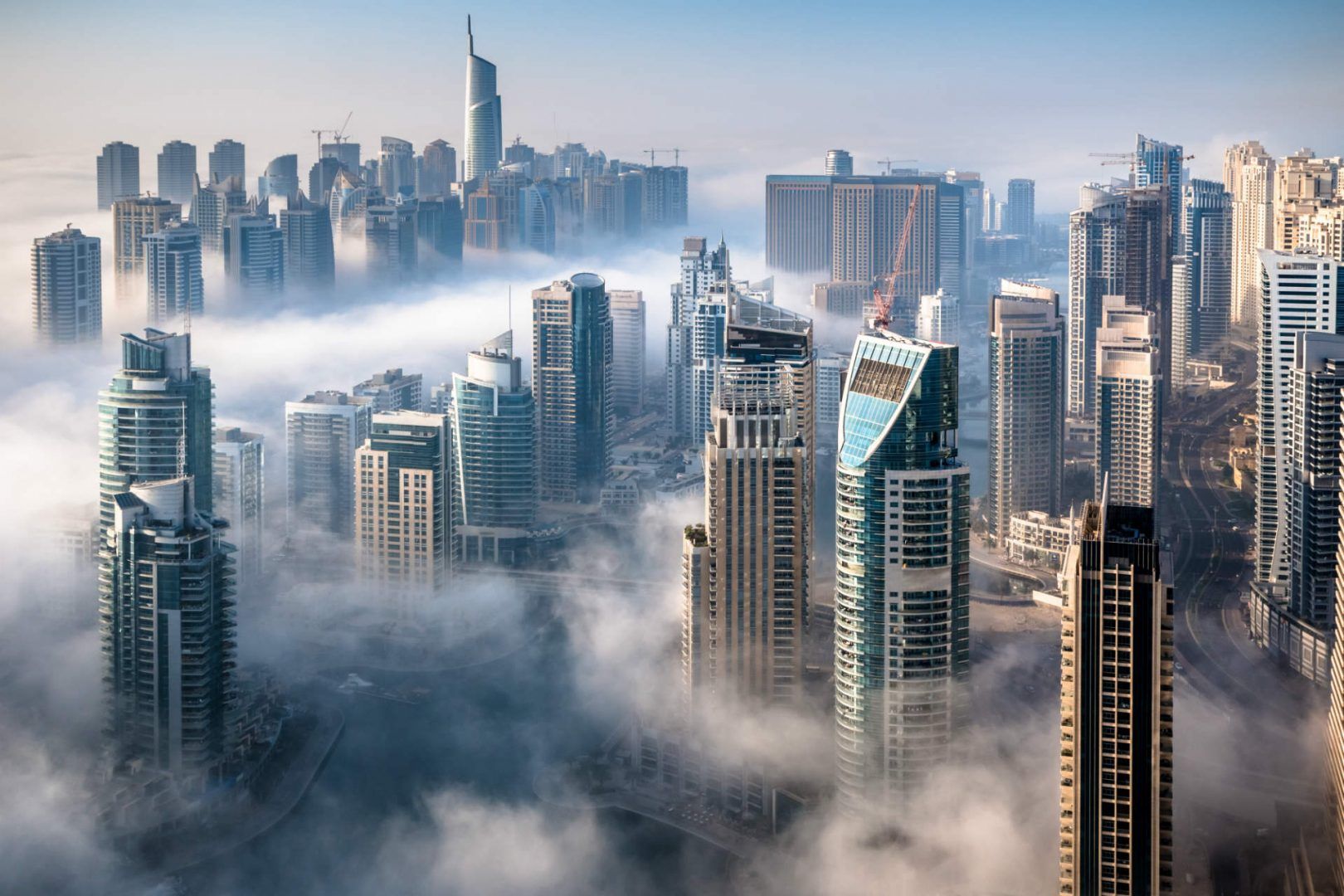Planning your own trip? Prepare for your trip
Use Rough Guides' trusted partners for great rates
Book your individual trip, stress-free with local travel experts
written by Eleanor Aldridge
updated 29.07.2021
French novelist Gustave Flaubert once said: “Travelling makes one modest – you see what a tiny place you occupy in the world”. With this in mind, here are twenty daunting and spectacular places around the world that might make you feel a little small.
A trip to see moai lined up on Ahu Tongariki ranks highly on many a bucket list. The Isla de Pascua, as it’s known in Spanish, lies over 2000km from the nearest landmass and no-one knows exactly why the islanders were compelled to create these enigmatic monoliths – a fact that only makes the carvings all the more intriguing.
’s giant redwoods are the world’s tallest trees, some reaching over 100m in height – that’s nearly as tall as the London Eye. They thrive in a small belt of northern California, and just over the border into Oregon, where they can live for up to two thousand years, dwarfing the many visitors who come to gawp at their magnitude.

© reisegraf.ch/Shutterstock
The world’s last frontier is a tempting challenge. Icy Antarctica has lured travellers since Scott made his fateful trip to the South Pole over a hundred years ago. Today, exploring has become a lot easier with around 40,000 visitors arriving on tours each year, but the frozen continent is no less impressive.

© Monicami/Shutterstock
Dubai’s building frenzy culminated with the Burj Khalifa in 2010. This jagged spire remains the tallest building on earth at 828metres, with over 160 stories and lifts that travel at over 20mph. Marketed as a “home for the world's elite”, the owners claim the building “lifts the world's head proudly skywards, surpassing limits and expectations”.

© LplusD/Shutterstock
Peter Eisenman’s linear, grey “Field of Stelae” was constructed in the centre of Berlin in 2006 as a monument to the six million Jews murdered during the holocaust. There are few more harrowing experiences than walking the disorientating maze of concrete blocks before descending to the emotive visitor centre hidden below.

© sharptoyou/Shutterstock
Over 80 metres high and extending for nearly three kilometres, Iguazú Falls span the Argentina–Brazil border some 100km west of São Paulo. Not only are they one of the most magnificent natural wonders in South America, but UNESCO rank them as “one of the largest and most spectacular waterfalls in the world”.

© khanbm52/Shutterstock
There are few sights more impressive than the snow-capped peak of Kilimanjaro, Africa's highest mountain, rising from the plains in northeast Tanzania. The six- or seven-day ascent to the summit takes more willpower and perseverance than climbing skill; it’s a test of endurance that puts even the most arrogant of adventurers through their paces.

© WitR/Shutterstock
In the north of Ethiopia lies one of the world’s most interesting pilgrimage destinations, the churches of Lalibela. These eleven rock-cut, monolithic churches are thought to have been hewn into the reddish earth during the thirteenth century. Today, their mystique attracts thousands of visitors each year and the site has been awarded World Heritage Status.

© 2checkingout/Shutterstock
Sited on a high, mist-cloaked mountaintop surrounded by vertiginous cliffs, the ancient Inca city of Machu Picchu has dazzled and intrigued travellers since it was discovered by Hiram Bingham in 1911. The most famous way to reach the site is along the Inca trail – a four-day slog that makes the first glimpse of the ruins all the more rewarding.
is desert, a remote and rugged landscape that stretches for mile-upon-mile towards the country’s “Red Centre”. The best way to experience the Outback is on a Aboriginal-led tour, where local guides can give you a glimpse into the history and culture of a region inhabited for tens of thousands of years.

© AlexAnton/Shutterstock
Close to the bank of the Nile in Egypt lies one of the seven wonders of the ancient world, the Great Pyramid of Giza, constructed over four thousand years ago. No one knows exactly how the ancient Egyptians managed to build a tomb so elaborate that it weighs in at nearly six million tons, but it has drawn explorers, adventurers and archaeologists for centuries.

© MrLis/Shutterstock
What could be more humbling than visiting the Cradle of Humankind, once home to the ancestors of the human race? This 53,000-hectare site in South Africa has played a “crucial role in furthering our understanding of human evolution“ according to UNESCO. Around forty percent of the world’s hominid fossils have been found here, some dating back over three million years.

© Mr Nai/Shutterstock
It’s hard to believe that some of the five-ton monoliths that make up this famous stone circle were transported over 200km from Preseli in Wales. It’s thought they were erected here in around 2500BC, yet modern archeologists are still unable to explain how they were moved such a long distance and why they were arranged on this Wiltshire hillside.
Nowhere else evokes the feeling of being a drop in the ocean like Tokyo. The Tokyo Metropolitan Area is the world’s largest city by population – it’s home to over 35 million people, plus nearly a hundred cat cafés and fourteen three-Michelin-star restaurants. You could live here for years and still not scratch the surface.

© BMJ/Shutterstock

© f11photo/Shutterstock
Ever felt dwarfed by a hotel? It’s hard not to be intimidated by the MGM Grand in Las Vegas, reportedly the world’s second largest hotel with a whopping 5,044 rooms. Opened over twenty years ago, The Grand employs over 8000 staff and houses a wedding chapel, 29 private villas and 170,000 square feet of gaming space.

© Steve Allen/Shutterstock
Few places have shaped our scientific knowledge as much as the Galapagos Islands. It was here, nearly 1000km off the coast of Ecuador, that Charles Darwin observed contrasting traits between finches on different islands and formed his ideas on evolution. Following in his footsteps can't fail to make budding scientists intimidated by the magnitude of his discovery – and the improbability of matching it.

© Case60/Shutterstock
Jordan’s Nabataean rock city, carved into the rose-coloured mountains bordering the Wadi Araba desert in the west of the country, is spellbinding. Perhaps the most striking ruin is the oft-photographed 40-metre-high Treasury, the first building visitors see as they emerge from the Siq canyon – it’s thought to be a tomb built in the first century.

© CPM PHOTO/Shutterstock
You can’t fail to be awe-struck by the world's largest cave. Vietnam's Son Doong was onlydiscovered in 2009, and it's utterly spectacular. The giant cavern is over 100 metres high, lofty enough to house Big Ben and the Flatiron Building. You'll have to get in line for the humbling experience of a visit, though: at present only 220 trekkers are permitted each year.

© Roop_Dey/Shutterstock
What better way to conclude this list than with the world’s most romantic gesture, the Taj Mahal in India? This majestic edifice of glimmering white marble and semi-precious stones is was constructed over twenty years in the 1600s by emperor Shah Jahan to house the body of his much-adored wife, Mumtaz Mahal, and to commemorate his love for her.
Get more travel inspiration with our travel roulette page. Book hostels for your next trip, and don't forget to purchase travel insurance before you go.

written by Eleanor Aldridge
updated 29.07.2021
Use Rough Guides' trusted partners for great rates
Plan your tailor-made trip with a local expert
Book securely with money-back guarantee
Travel stress-free with local assistance and 24/7 support